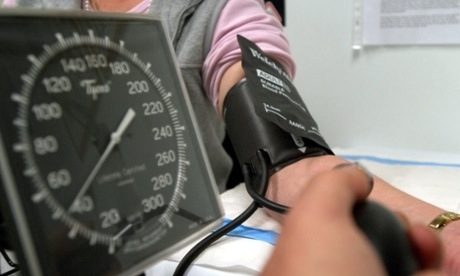
The Australian Medical Association has called on Tony Abbott to “bow to common sense” and withdraw planned changes to Medicare before they take effect on Monday.
The AMA argued the prime minister should personally intervene after it became clear on Wednesday that a majority of senators would vote to overturn cuts to Medicare rebates for short consultations with GPs.
The regulation – made by the then health minister, Peter Dutton, before he was replaced by Sussan Ley in a cabinet reshuffle last month – reduces by about $20 the Medicare rebate that applies to consultations shorter than 10 minutes.
The measure cannot be disallowed by the Senate until after parliament resumes in February, so GPs may have to adapt to the changes for a short period of time before reverting to previous arrangements.
The opposition leader, Bill Shorten, announced on Wednesday he would move a disallowance motion at the earliest opportunity, a move the Greens have also flagged. Labor and the Greens appear to have the support of at least four crossbenchers – the number required to overturn the regulation.
The AMA’s president, Brian Owler, welcomed the announcements, saying Abbott should now abandon the rebate cut and “bring an end to the fear and uncertainty the government has caused for doctors and patients around the country”.
“It was never a good idea, and Mr Abbott should take this opportunity to ditch it and instead consult with the medical profession on how to support quality primary health care,” Owler said, reaffirming his previous warnings that GPs were planning to conduct rallies against the changes.
Abbott, who is on leave this week, accused the AMA of changing its tune in a radio interview on Wednesday, saying the group had previously criticised the practice of “six-minute medicine”.
“They wanted to see doctors spending more time with their patients and that is exactly what these changes are designed to produce,” the prime minister told 3AW.
Ley, who has also been on leave, issued a statement describing Labor’s decision to disallow the measure as a “sneaky backflip”. She pointed to Shorten’s comment in December that the opposition was “open to considering” the measures aimed at countering rushed visits.
Ley said the government’s plan would ensure Medicare rebates “more accurately reflect the time a doctor spends with their patient and encourage longer GP consultations for better health outcomes”.
But Labor’s health spokeswoman, Catherine King, told the ABC the large cut to the rebate would have a “substantial impact on out-of-pocket costs for patients” and place “a barrier in the way of people accessing what is the most efficient part of our health system”.
Labor had used the summer to consider what the government had put forward, she said.
Shorten said the opposition had talked to GPs and believed the proposal reflected bad health policy because it would hurt bulk billing and make it more expensive for people to go to the doctor.
“These GPs say sometimes we can see people in quicker than 15 minutes but that’s because we’ve got 10, 20, 30, 40 years of experience,” he told the ABC on Thursday.
“No one believes this is about medicine or health care in Australia. They all think it’s about a government who can’t get their way on their GP tax.”
The changes to rebates for short consultations were part of the government’s “plan B” for Medicare, after Abbott and Dutton conceded in December that the budget policy to introduce a co-payment would not pass the Senate.
After the January changes to timed consultations, the government plans to cut $5 from the rebate for adult non-concession patients in July, a cost that GPs are likely to pass on. The government also intends to extend the freeze on indexation of Medicare rebates.
The government says the measures, taken together, will save about $3.5bn – a similar amount to the previous co-payment policy.
On Thursday the AMA released a letter that Owler sent to Abbott late last week describing the imminent changes to timed GP consultations as “short-sighted”.
“Your government has imposed this significantly detrimental measure on general practice without consultation, with only five weeks’ notice and during a period when they are operating with minimum staff. You have left it to general practitioners to explain your ‘savings’ measure to the Australian people. This is hardly congruent with a government that is ‘totally committed to rebuilding general practice’ and that is ‘cutting red tape’,” Owler wrote.
He added: “The level of anger and disbelief within the general practitioner community that your government has so little regard for the value of their services at the front line of Australian healthcare is unprecedented.”
